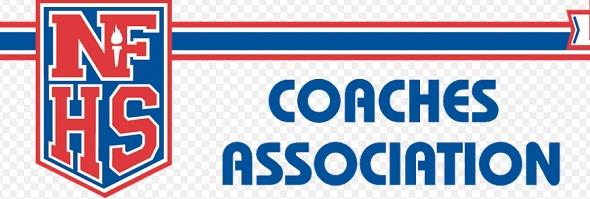
Brother Rice's Venos Honored by NFHS
January 12, 2018
By Geoff Kimmerly
Second Half editor
One of the most successful boys swimming & diving coaches in MHSAA history was honored Thursday by the National Federation of State High School Associations (NFHS) Coaches Association.
Birmingham Brother Rice’s Michael Venos was recognized as the National Coach of the Year in his sport after leading the Warriors to a fourth-straight Lower Peninsula Division 1 championship last winter.
The following brief bio includes Venos’ coaching philosophy, which he was asked to submit after being identified as a candidate for the award.
 Mike Venos is in his 34th year coaching and 21st at Brother Rice, including his 20th as the head of the Warriors program. He has coached 12 individuals MHSAA Finals champions and 15 relay Finals champions, with a record 19 straight Detroit Catholic League team championships. He has been named Class A/Division 1 Swim Coach of the Year by the Michigan Interscholastic Swim Coaches Association four times. Venos also led the Farmington Hills Mercy girls swimming & diving team to the LPD1 championship in the fall.
Mike Venos is in his 34th year coaching and 21st at Brother Rice, including his 20th as the head of the Warriors program. He has coached 12 individuals MHSAA Finals champions and 15 relay Finals champions, with a record 19 straight Detroit Catholic League team championships. He has been named Class A/Division 1 Swim Coach of the Year by the Michigan Interscholastic Swim Coaches Association four times. Venos also led the Farmington Hills Mercy girls swimming & diving team to the LPD1 championship in the fall.
“Very simply stated, it's never about winning. It's about being the best. I am fortunate enough to be able to coach young men and women who just happen to swim. My mission in life is for them to be able to take the lessons they learn from our sport and apply it to their lives. I understand that our parents have their children involved in swimming for more reasons than just to swim fast. I believe that no one person is more important than the team and I want my student-athletes to understand that they are part of something larger than themselves. I don't measure our success by wins and losses, but by how our young men and women go out into the world and represent their team by applying what they have gained from our sport in the daily aspects of their lives.”
The NFHS has been recognizing coaches through an awards program since 1982. Winners of NFHS awards must be active coaches during the year for which they receive their award.

Crisis Coaching
June 14, 2013
On the highway outside my office window last week, there was a traffic accident that involved two 2012 graduates of a mid-Michigan high school. One was killed, the other appears to be recovering from serious injuries. The young men had been on their way to work.
The next morning’s newspaper coverage – in the news section, not the sports pages – revolved around the boys’ high school football coach. He told the reporter about his former players’ character and their dreams, and what a difficult day he had spent with their families. Later, local television stations made this coach their go-to person for updates.
This plays out so often: a family faces a crisis, and a coach is quickly on the scene. The best part of coaching – close and even lifelong relationships with players – becomes the toughest – being physically present when those players or their families need support.
It has played out so often in my experience that I can’t imagine what is lost in our schools as interscholastic coaching positions are farmed out to volunteers, or programs are eliminated altogether. I can’t imagine what is lost in the lives of students, and many of their families.
The richest part of coaching is relationships, which are often most revealed during the worst circumstances.

